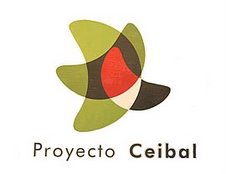Originally Published by Pablo Flores on Mon, Dec 24th, 2007
Translated by Paul D. Spradling
OLPC creator arrives to Uruguay in March
Visit. Nicholas Negroponte will assist the Americas Innovation Forum
Nicholas Negroponte, the mythical academic from Massachusetts Institute of Technology’s (MIT) Media Lab and president of the OLPC foundation will come to Uruguay.
He is coming to give a conference for Americas Innovation Forum (AIF), which will be held from March 30th to April 2nd, in the Conrad hotel of Punta del Este.
Organized by the Uruguayan Government, through the National Agency of Investigation and Innovation (ANII), AIF is the follow-up event of the Americas Competitiveness Forum (ACF) that took place in Atlanta, GA, USA last June, hosted by the US Secretary of Commerce, Carlos Gutiérrez.
The Executive Secretary of ANII, Alberto Nieto, presented this forum as the opportunity to encourage the meeting of the players of innovation and as a tool of socioeconomic development in the region. For Industry Minister Jorge Lepra, AIF 2008 also has the main objective of positioning Uruguay as a regional reference in the area of technological development and innovation.
The forum, whose motto is “Promoting prosperity and development through innovation”, was designed as a meeting point for the business, academic and governmental references of the Americas. These people know the importance of innovation and the added value of knowledge as key factors for development.
The three main objectives are: innovation culture and strategies, public policies to promote and support innovation, as well as the value of knowledge in enhancing productivity.
GURU. Nicholas Negroponte has been thinking for the best way to put a computer in the hands of every child since the 70s, but it wasn’t until 2005 that he presented his proposal to achieve it: OLPC, One Laptop Per Child. It’s about a small computer intended for Third World Countries; easy to use, impact, dust and water proof, that doesn’t need electricity to recharge (it uses a small generator). [Note: The generator was not implemented into final design].
But it’s not as cheap as originally proposed. Two years ago, Negroponte assured that his laptop would cost U$S 100 and that its production would begin in 2006. But the reality is that the mass production of the laptop didn’t start until late 2007 and that Uruguay would pay U$S 199 for each of the 100,000 PCs initially ordered for their Ceibal Project, inspired in the OLPC.
The plan consists of giving each public school student a laptop at no cost. Its two main objectives are: the digital alphabetization of the new generation of Uruguayans and to improve the traditional process of education. This initiative is considered key by the government, who assigned important budgets to the project.
Project Ceibal began last May with a pilot experience in Villa Cardal, Florida. In this experience, 180 children and teachers of the Italia School received their own laptop.
In addition to leading the creation of the XO laptops that are used in the Ceibal Project, Negroponte was a pioneer in the field of computer-assisted design, and cofounded and directs MIT’s Media Laboratory. He is also author of the best seller “Being Digital”, translated to over 40 languages.
In the private sector, he’s a board member of Motorola Inc. and a partner in a venture capital company specialized in digital technologies for information and entertainment. His company has given start-up funding to over 40 companies, including Wired magazine.
Source: El Pais
View post on Negroponte's visit to Uruguay in 1997 (This links to the Spanish version of the blog. I would go crazy if I were to translate old posts every time a new one links back to it. I will however translate them upon request. Leave a comment or email me at spradling 'at' gmail.com)


